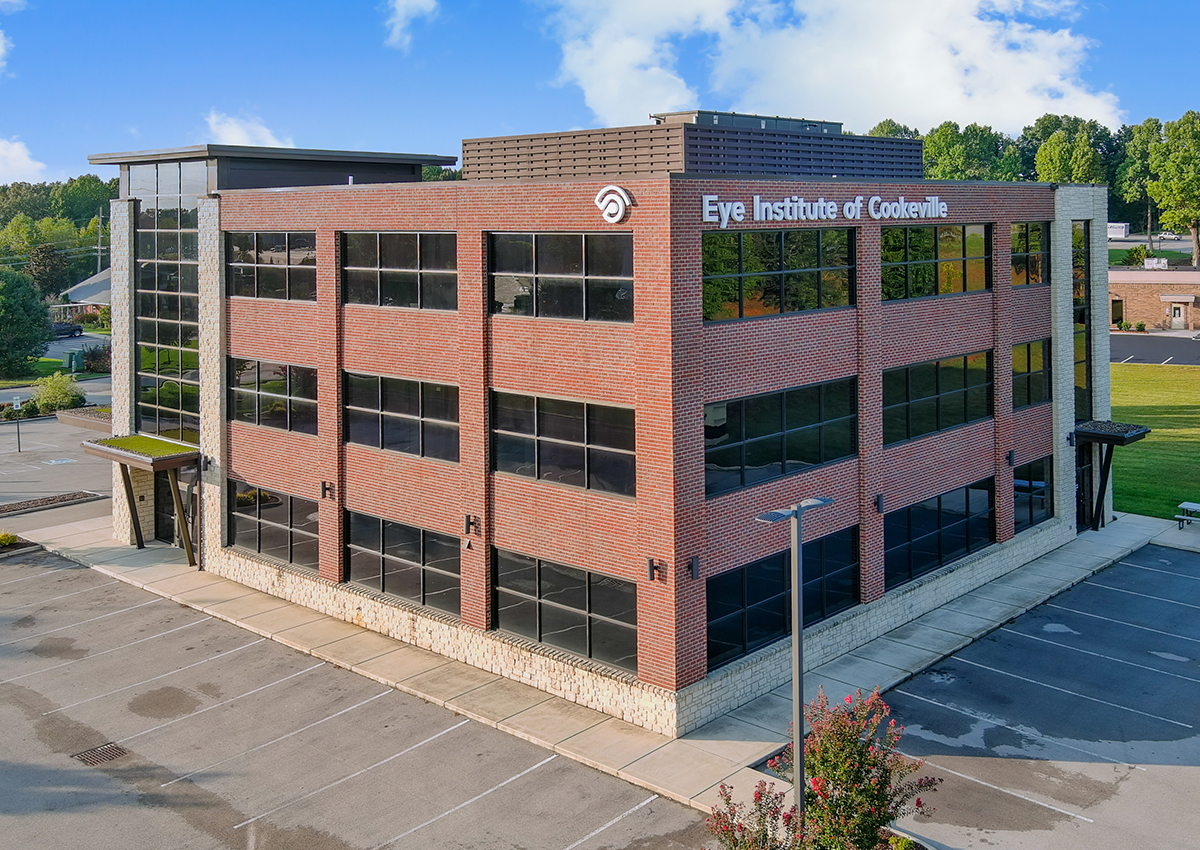Learning the Fundamentals of Commercial Real Estate Investing
With different kinds of commercial real estate appealing to diverse investor profiles, the realm of commercial real estate presents a wide range of intriguing investment options. From office buildings and retail spaces to industrial properties and multi-family residences, every kind of commercial property has advantages and drawbacks; knowing them can help one to negotiate this complicated market. Broad variances include property type, location, market conditions, as well as tenant demographics should be familiar to an investor therefore adding layers of complexity to the process of choice and management.
Investing in commercial real estate calls for a strong awareness of many investing techniques, each suited to the particular requirements and goals of the investor eventually hoping to earn a profit. Knowing these techniques helps one evaluate the value proposition of any property: for instance, will the property appreciate greatly over time or is the main objective to provide rental income? Choosing the right investing plan helps the investor to make wise judgments fit for their particular risk tolerance, investment schedule, and financial objectives. Thus, becoming competent in commercial real estate investing is not only desirable but also necessary to release its benefits.
The several varieties of commercial real estate properties
From retail locations and office buildings to industrial structures and multi-family housing complexes, commercial real estate investing covers a range of property kinds. By means of rental income and capital appreciation, investment in commercial property presents the possibility of great returns and long-term stability, therefore producing dividends. This range emphasizes the adaptability of the commercial property market, which enables investors with different risk tolerances and financial capability to locate appropriate offers catered to their particular investment goals.
Regarding maintenance expenses, lease rules, and possible return on investment, every kind of commercial property has special factors. Leasing commercial real estate, for example, retail spaces sometimes requires signing long-term leases, which guarantees a consistent revenue. Conversely, concluding a commercial real estate acquisition for an industrial unit could provide large capital gains attributable to property appreciation. Therefore, knowing these variations is quite important in choosing an investment property fit for the financial objectives and risk profile of the investor.
Investigating Investing Strategies in Commercial Real Estate
Regarding commercial real estate investment, knowledge of property valuations is absolutely vital. Determining possible returns on investment depends much on property values, which are shaped by many elements including location, size, proximity to facilities, and property quality. An investor’s main concentration should be on property valuation—that is, the method of determining the real worth of a property. This approach usually requires professional appraisals, careful study on market trends, and analysis of similar properties.
Moreover, investing in real estate depends on knowing the several forms of commercial real estate property. Investing in apartment buildings, for example, offers several benefits not available from other types of commercial real estate, such consistent monthly revenue and possible value appreciation. Real estate for novices can be complicated and has a learning curve, though, so keep that in mind as well. Buddying investors should thus be ready for an investment path requiring endurance, diligence, and ongoing education.
Making Commercial Property Investments: An All-Inclusive Guide
Entering the world of commercial real estate might be frightening, particularly for beginners of investments. Commercial property is bought for business use, unlike residential property—which entails buying homes or apartments for personal use or rental to people or families. From office buildings and retail areas to industrial sites and multifarious apartment buildings with five or more occupants, these can span For many investors, commercial real estate is an appealing choice despite its seeming complexity as it may provide large profits.
One of the key components of this financial route is knowledge of running costs. The return on investment can be much influenced by these daily expenses related to property maintenance. In this sense, the function of a self-directed IRA cannot be underlined; it enables property owners to invest in a greater range of assets (including commercial properties) using their retirement money. Knowing this helps even individuals who are just starting out in the investment scene to negotiate the complexity of commercial property investments with more confidence and expectational clarity.
A Close Examining Commercial Real Estate Investing
For individuals without any past experience specifically, commercial real estate investment sometimes appears like a frightening endeavor. Adopting the beginners guide to commercial investment, however, can help to simplify the procedure and offer a disciplined road for the like. The foundation of this approach is making wise decisions predicated on careful study of the relevant real estate properties. This removes a lot of the risk involved in these entrepreneurial activities and lets investors purchase real estate with significantly more confidence and accuracy.
In the field of commercial real estate, investment choices give the earning potential of the property first priority. The revenue potential of a real estate property is much influenced by location, possible lease, estimated returns, tax benefits, and appreciation possibilities. Furthermore, a well-considered investment plan helps one to deal with possible uncertainty and changes in the market. Therefore, the profitability of commercial real estate investments can be much influenced by a thorough awareness of such dynamics.
The function of property valuation in commercial real estate
Anywise smart investor must understand the importance of property appraisal in commercial real estate. The valuation procedure considers several elements, including location, state of the property, market trends and the kinds of accessible properties. Accurate valuation basically gives investors useful information required to negotiate price, structure deals, and guarantee real estate funding. Therefore, it is reasonable to say that any effective commercial real estate transaction is based mostly on property assessment.
Moreover, the smart investors of today fully exploit the digital revolution. They subscribe to powerful investor podcasts, use innovative underwriting tools, and never stop learning. Using these tools, they are better understanding property values and making more wise investment selections. Investors with the correct tools can obtain correct values and associated market information right at their email. This guarantees they remain current on changes in the market and modify their investing plans in line with them.
Investment Prospectives in Apartment Complexes and Office Buildings
Office buildings and apartment complexes have a special appeal for smart investors since the changing vacancy rates affect the profitability of real estate investments. A blend of rental income and property appreciation guarantees stability and strong increase by means of a high yield return on investment. Using real estate management firms will increase these returns by guaranteeing effective asset management, which will eventually help to lower your running expenses.
Your real estate broker has pointed out current market trends that will determine the ideal moment to enter such assets. Predicting the future direction of the market depends much on a detailed study of the present. Supported by their large network and familiarity with local markets, real estate brokers offer insightful analysis for wise decisions. Examining the cash on cash returns closely—that is, the cash earned against the cash invested—will help one to present a realistic assessment of the profitability and viability of the venture.
Operating expenses in commercial real estate: their significance
Especially in the field of commercial properties, capitalization on running expenses comprises a major component of the real estate company. Whether looking at office buildings or large retail complexes, every potential investor has to carefully review these running costs. This project offers a more complete explanation of the possible risks and rewards, therefore adding essential components to the profitability equation of CRE investment.
Market research supports a critical part in spotting and comprehending these operating expenses. From the fundamental square-foot maintenance cost estimates to the complexity of commercial real estate marketing and tenant turnover rates, these running expenses act as the economic indicators driving the success or otherwise, of a commercial property investment. Regularly giving these studies time and resources shows their value in enabling investors to make more wise and profitable selections.
Making Real Estate Investments Using a Self-Directed IRA
Understanding the use of a self-directed IRA for real estate investing is essential in separating the field of commercial investment. Basically, this fiscal vehicle gives investors great freedom to monitor investments in many assets not usually included in standard IRA options. This covers office buildings, multifamily homes, and a great range of other commercial structures. This kind of investment offers commercial real estate owners a good way to increase their retirement savings and simultaneously diversify their investment portfolio, therefore reducing risk.
Choosing a self-directed IRA as an investment vehicle calls for first determining favorable investing prospects. To guarantee outstanding earnings, this requires a thorough investigation of the feasible commercial real estate opportunities including office buildings and multifarious assets. Having a rich qualifying retirement plan can help you, as a commercial real estate investor, make a huge step toward guaranteeing future financial security and success. Apart from giving a significant income for retirement, this investment approach offers the investor tax advantages that can maximize the investment profits.
Leasing Commercial Real Estate: An Essential Component of the Enterprise
Because they so greatly influence the dynamics of commercial property investments, net leases are often important topics of debate in real estate news. Along with providing consistent cash flows during the lease term, this kind of lease agreement moves part or all of the running expenses to the tenant. The several forms of net leases—single, double, and triple net—offer a range of choices fit for the particular requirements of tenant and landlord. Consequently, a smart real estate owner can use net leases to reduce risks and enhance rewards.
The correct lease structure can greatly impact a real estate investor’s borrowing capacity when seeking for commercial real estate loans since it is a basic element of the consistency of cash flows. Among other things, lenders closely examine the terms of lease agreements to evaluate the dependability of the income sources. Therefore, knowledge and negotiation of appropriate leases could directly affect an investor’s access to credit, thereby playing a major part in the successful acquisition and administration of commercial properties.
The Value of Market Analysis for Commercial Property Investing
Due diligence in the broad realm of commercial property investing is not only a cursory review or quick check over statistics. It involves a complex process of knowledge of several elements influencing the value and possible returns of a property. This approach depends much on market study, which greatly guides the asset management on important factors including regional economic conditions, demographic trends, competitive analysis, and vacancy rates. This knowledge, together with a thorough awareness of financial elements including running expenses and the relative security of income flows, shapes wise investment choices.
Furthermore, by means of such thorough market study, an investor can differentiate among the several forms of leases, mostly gross leases, and triple net leases. Triple net leases in commercial real estate occupy a special position that makes regular study highly interesting. Triple net leases transfer operating expenditures including insurance, maintenance, and property taxes – unlike residential real estate, where the landlord usually pays them. Here, implicitly, knowledge of cap rates is quite vital. Basically, by analyzing the link between the purchase price and the net operating income, the cap rate lets an investor know the risk connected with a property. Therefore, a thorough vision of the commercial real estate scene results from a well investigated market analysis; this view is very necessary to guarantee informed, lucrative decisions.
The craft of closing a commercial real estate deal
Especially when it comes to concluding a purchase, navigating the convoluted and demanding commercial real estate market calls for a great knowledge and sharp abilities. Commercial deals are often far more complex, more massive than in the conventional real estate sector, and therefore carry more possible risk. Thus, in this industry, a well closed deal calls not only for skill but also a certain combination of imagination and tenacity. It emphasizes the artistic quality entwined with the analytical aspects of the sector.
Understanding the market, evaluating commercial loans, and finding the appropriate real estate are just a few of the several elements that guide investors in this field. Still, the techniques are not limited there. The delicate art of concluding a deal consists in its folds the essential elements of commercial property investment and leasing of commercial spaces. Every one of these elements creates stepping stones that finally result in the signing of a favorable contract. All taken together, these components create the fabric of wise commercial sector real estate investment.
Commercial Real Estate Cash Flow Understanding and Calculation
In the field of commercial real estate, particularly for newcomers beginning in commercial property investment, the ability to effectively evaluate cash flows can be revolutionary. Cash flows from commercial real estate, whether retail buildings or special purpose buildings, vary depending on numerous elements. These could be fluctuations in property value, rental revenue, and market interest rates. Maintaining a good cash flow usually depends on finding a flexible financing source and making wise judgments during real estate sales closing.
Still, just knowing cash flows is half of the story. One must learn the art of computing these cash flows if one is to really enjoy the advantages of commercial real estate investment. Here, the net operating income (NOI) is the important number to figure out and give thought. It is the income from the property less running expenses, then before taxes and interest payments are deducted. This helps investors to ascertain the profitability of a property, therefore guiding their decisions in line with their risk tolerance and financial objectives.
The Value of Due Diligence in Business Real Estate Investing
Smart investors understand in the field of industrial real estate the need of extensive due research. Often including industrial properties, financing, legal considerations, and market trends, this procedure involves a thorough research and validation of a property’s value. Examining the financial records, liabilities, and possible regulatory concerns of the property will help the investor avoid future legal and financial trouble. Moreover, following commercial real estate news gives investors the advantage since it helps them to foresee possible possibilities, price adjustments, and changes in the market.
Starting in commercial real estate investing calls not only a strong awareness of market trends but also knowledge with the nuances of real estate transactions. This usually calls for a real estate license as well as a basic knowledge of property transfer and rental property operation legislation. Not only does meticulous due care lower hazards but also raises the possibility of significant return on investment. It supports the investment plan, therefore enabling wise decision-making and long-term success in commercial real estate investment.
Goal: Making Smart Commercial Real Estate Investment Decisions.
In the field of commercial real estate investment, one must be well-versed in market trends, property valuation, running expenditures, and—above all—the skill of wise investment selections. Often the difference between the success or failure of an investment is the capacity of an investor to evaluate these factors holistically and seize profitable possibilities. From origination to close, the complexity of commercial real estate transactions calls for a continuous degree of vigilance and strategic decision-making motivated by correct information, critical analysis, and foresight.
Decisions taken with knowledge go beyond only financial consequences. They cover exhaustive due diligence, a careful study of cash flows, and a strong awareness of leasing dynamics in the business environment. Investing in commercial real estate with a self-directed IRA helps to promote such choices by providing flexibility and control and thus optimizing the possibility for great returns. The investor’s endgame—profit maximization and risk minimization—can be greatly shaped by a well-considered investment plan in concert with a clear knowledge of various commercial property kinds.










